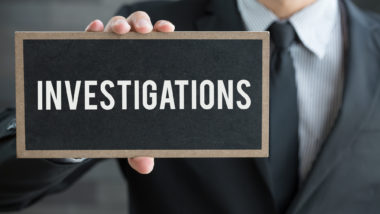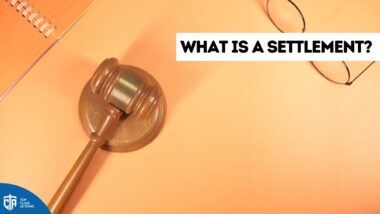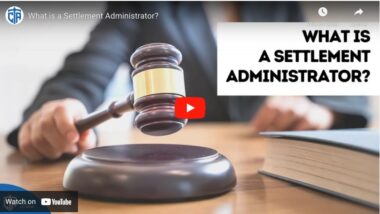Top Class Actions’s website and social media posts use affiliate links. If you make a purchase using such links, we may receive a commission, but it will not result in any additional charges to you. Please review our Affiliate Link Disclosure for more information.
There are a few things consumers should know about how to file a class action lawsuit. In order to start a class action of any kind, a person must have a cause of action that is shared by a significant number of others. The class action lawsuit is based on the old principle of strength in numbers and allows a large number of plaintiffs to bring legal action against a powerful defendant when individual lawsuits are not practical.
That said, the entire process begins with a single plaintiff or a small group (two to three) individuals who have suffered the same harm by the defendant.
Who Is Eligible to File a Class Action Lawsuit?
Virtually anyone with a valid cause of action can start a class action lawsuit, provided they meet certain qualifications. Primarily, this means the one who files must demonstrate a number of things, which are defined under Federal Rule of Civil Procedure Number 23:
- Adequacy — Is/are the lead plaintiff(s) able to represent the class in a fair and adequate manner?
- Ascertainability — In other words, can all potential plaintiffs be identified?
- Numerosity — Are there enough plaintiffs to justify granting class status?
- Commonality — Do all plaintiffs have the same cause of action?
- Typicality — Is/are the class representative(s) typical of the other class members?
In addition to the above, the lead plaintiff(s) must prove the cause of action is serious enough to warrant the court’s involvement. Furthermore, the class representative(s) must be able to answer affirmatively to at least one of three questions raised under Rule Number 23(b):
- would filing separate, individual lawsuits create a risk of inconsistent verdicts?
- would a court order (injunctive or declarative relief without the involvement of a jury) be appropriate in light of the cause of action as it relates to all class members?
- are there common questions of law that would make a class action preferable to individual lawsuits?
Any injured party who can meet the above requirements is eligible to start a class action lawsuit.
How Many Plaintiffs Are Required to File a Class Action Lawsuit?

What Happens After a Class Action Has Been Filed?
Once the papers have been filed, the case goes before a judge, who will review the complaint and determine whether there is a sufficient number of plaintiffs with the same cause of action as well as other factors. If the judge determines that the case has merit and there are enough qualified petitioners, s/he will allow the case to move forward.
Are There Financial Incentives for a Lead Plaintiff?
As noted earlier, the lead plaintiff is entitled to extra compensation for working closely with the attorney(s), attending all court proceedings and generally representing the other class members before the judge and jury.
How Much Does It Cost to File a Class Action Lawsuit?
Typically, there are no up-front costs to start a class action lawsuit. Once they have determined that the case is strong enough, lawyers who specialize in this type of litigation represent the class on a contingency bases, meaning they front all initial costs of filing and moving the case forward.
If the case ends in a settlement or a verdict in favor of the plaintiffs, the lawyer(s) take a percentage of the judgment (generally one-third). It is a risk for them as well as the lead plaintiff(s), because if the defense prevails, they receive nothing.
What If Some Class Members’ Complaints are Different?
If all plaintiffs’ cases are not identical, this is not necessarily a deal breaker. Such a situation is covered under Federal Rule of Civil Procedure Number 23(c)(4), which allows for the establishment of “subclasses.” Forming subclasses is appropriate under the following circumstances:
- Some class members are seeking different relief than others — for example, some plaintiffs want the defendant to pay for health monitoring, while others are seeking monetary compensation
- Some groups among the class members have slightly different, but related facts
- There are groups from different jurisdictions with varying rules of evidence
While a class action can be sustained with a few subclasses, too many may result in a decision by the court to deny class certification on grounds that “common questions [of law] do not predominate.”
How Long Does It Take to Resolve a Class Action?
There is no good answer to this question. While some class action lawsuits can be resolved in a few months, many of them go on for two years or more. It all depends on the strength of the claim, preponderance of evidence and the complexity of the case.
Ideally, lawyers on both sides will be able to negotiate a satisfactory settlement before the case goes to trial; this is considered the best outcome in most cases. The only drawback is that typically, when a defendant agrees to a settlement, they are not required to admit any liability or wrongdoing.
What Is the Difference Between a Class Action and Multidistrict Litigation?
While both involve multiple plaintiffs, the parties in a class action are legally considered to be a single plaintiff. In multidistrict litigation (MDL), plaintiffs share judicial resources and pre-trial procedures (such as discovery, expert testimony, etc.), but retain their individual lawsuits.
What Does a Person Need Before Approaching an Attorney?
Most lawyers and firms specializing in class action litigation offer free initial consultations, either in person, online or over the telephone. During this session, the lawyer will want to make certain that the claim is a valid one, as cases deemed to be frivolous tend to be dismissed quickly.
One should be prepared to provide documentation of the complaint (such as photos, receipts, etc.) before they start a class action lawsuit. The lawyer will then research similar past cases and attempt to learn whether or not any laws have been broken, and how many other people have been affected by the same kinds of issues.
Class action lawsuits can be filed in myriad areas, including civil rights, defective products, medical problems, false claims and more.
















119 thoughts onHow Do I Start a Class Action Lawsuit Against a Company?
I had been saving Visa gift cards that I received from my mother over the past couple years to put towards a big purchase. They were unopened. Then tried to use them and 3 of the 4 Visa gift cards had been compromised. Each one was worth $100. Visa would only replace one Vanilla Visa card, not the other non-Vanilla Visa cards. Reason I was given was one Visa had charges from over 60 days ago, I opened a dispute but never responded to me. Second Visa said denied based on documentation I submitted. But I wasn’t asked to submit anything and this card was flagged for fraud by Visa first and frozen after multiple charges. I replied but no one responds. This feels like a scam.
I, along with thousand of other passengers was defrauded by Holland America Line. They should a cruise that included a port stop in a Nicaragua in 2022, with the sail date of 3/4/23. The problem was, cruise ships were banned from Nicaragua due to COVID protocols wiht no end date listed, and Holland America knew this at the time the itinerary was published and the cruise was sold to me and my fellow passengers. Holland America did not notify us until it was after the cancellation date that we would not be going to Nicaragua. This is different from an unexpected event that happens after the cruise is booked/or sets sail. This was a known event when they sold the cruise. Selling a product you can’t deliver and you know you can’t deliver is fraud.
File a suit against Apple. While updating an Apple IPhone 12, it completely froze on the Apple logo. You can’t do anything to unfreeze it. I spoke with Apple it is either a hardware or software failure while updating(no fault of my own). They informed me that the phone is out of warranty so it will cost me to get it fixed. Warranty or not this is their system failure not my responsibility. They stood firm. Didn’t care. Pay to fix it or have a frozen non working phone.